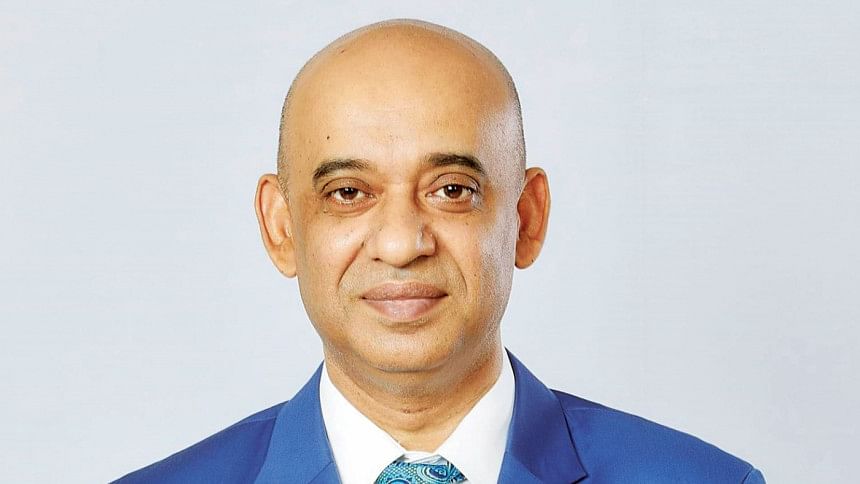A movement not just a service

Md. Arup Haider
Deputy Managing Director & Head of Retail Banking
City Bank
The Daily Star (TDS): Why is school banking pivotal for individual development and national advancement?
Md. Arup Haider (MAH): Banking is not just about transactions; it's about instilling a sense of responsibility, discipline, and awareness in young minds. When students are introduced to banking at an early age, they acquire essential skills such as saving, budgeting, and financial planning—skills that remain with them throughout their lives. This education shapes them into informed, financially literate adults capable of navigating the complexities of personal and professional finance.
From a national perspective, school banking fosters a generation more attuned to the importance of financial inclusion. This is crucial for Bangladesh's long-term economic growth. Imagine a society where young people grow up understanding how to manage credit responsibly or save for future investments. It's transformative, empowering them to aspire for greater achievements, contribute to GDP growth, and address the wealth inequality that continues to challenge emerging economies like ours.
TDS: What has been the recent response to school banking initiatives in the country?
MAH: The response has been promising but still leaves room for broader adoption. Students and their parents are increasingly recognising the value of early financial literacy. In recent years, we've observed a surge in student account openings, particularly in urban and semi-urban areas. Parents view this as an investment in their child's future—a step towards instilling responsibility and fostering independence.
However, rural areas remain a challenge. Limited access and awareness continue to hinder the progress we aspire to achieve. The onus is on us—financial institutions, regulators, and educators—to extend school banking into the heart of Bangladesh. Programmes need to be more localised, and partnerships with schools must be strengthened to bridge the awareness gap.
TDS: How does your bank facilitate school banking?
MAH: At City Bank PLC, we believe that banking for students should go beyond merely providing accounts—it should empower and inspire. To make banking accessible for students, we've introduced zero-balance account opening, eliminating barriers that might otherwise deter them or their families. Additionally, these accounts come with zero maintenance fees, ensuring that financial inclusion is an opportunity rather than a burden.
We've made savings more rewarding for students by offering attractive interest rates on their deposits, encouraging the habit of regular saving. Our personalised debit cards, designed specifically for students, are not just tools of convenience but also symbols of independence and responsibility, allowing young people to manage their spending in a safe and controlled environment. Additionally, Citytouch adds another dimension to our offerings, catering to this tech-savvy generation.
But our efforts don't stop at providing products. We host an annual School Banking Conference, a platform where students and educators come together to explore the importance of financial literacy and banking. Beyond this, our literacy programmes have reached 128 schools across the country, impacting more than 20,000 students. Notably, almost one-third of these participants come from rural schools, where access to financial education is often limited. These programmes are designed not only to educate but also to spark curiosity and open doors to new possibilities.
For us, school banking is not just a service—it's a movement. It's about ensuring that the next generation of Bangladeshis is equipped with the knowledge and tools needed to shape their own financial futures. When we invest in the financial literacy of our youth, we invest in the future of the nation.

 For all latest news, follow The Daily Star's Google News channel.
For all latest news, follow The Daily Star's Google News channel. 



Comments